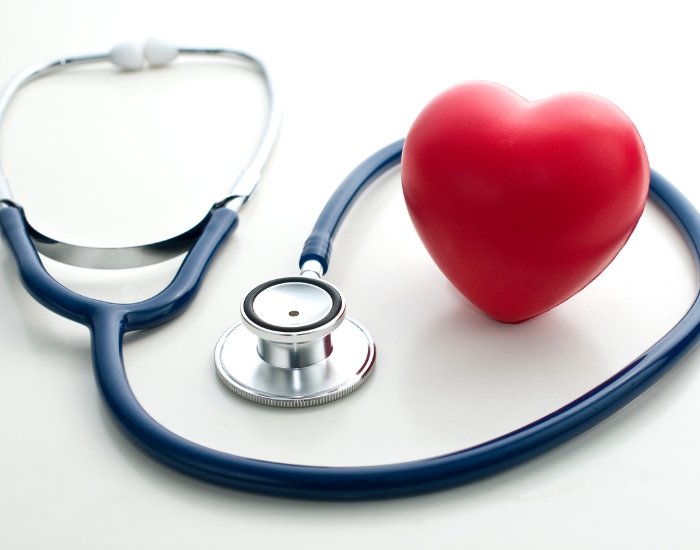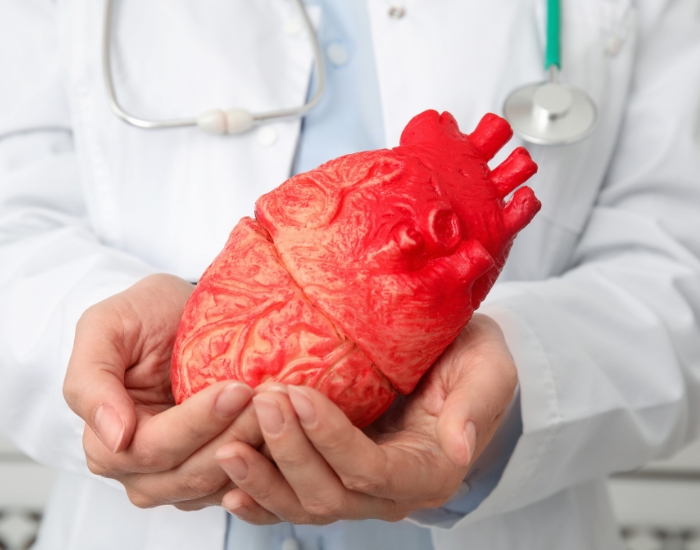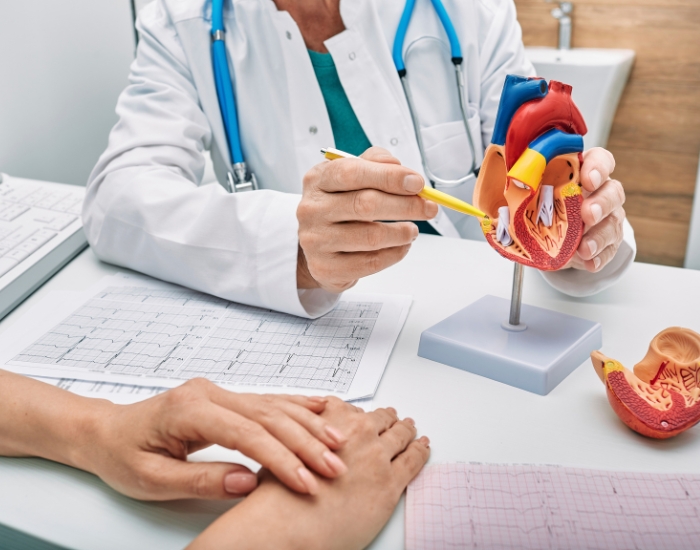Heart failure and chest pain are not just common health concerns—they are serious warning signs that your heart needs immediate attention. Ignoring these symptoms can lead to serious complications, but understanding the causes, recognizing early warning signs, and knowing the available treatment options can make a significant difference. By partnering with an experienced cardiologist in Katy, patients gain access to personalized care, advanced diagnostic tools, and tailored treatment plans. This proactive approach empowers you to take control of your heart health, reduce risks, and improve your overall quality of life. Whether it’s managing daily symptoms or preventing future complications, timely guidance and expert support are key to maintaining a stronger, healthier heart.
Table of Contents
- Understanding Heart Failure: Causes and Types
- Causes of Heart Failure and Chest Pain
- Warning Signs You Shouldn’t Ignore
- Diagnostic Tests and Evaluation
- Treatment Options in Katy
- Lifestyle and Preventive Measures
- When to See a Cardiologist
- Heart Care in Katy, TX
- Final Thoughts
1. Understanding Heart Failure: Causes and Types
Heart failure is a serious condition that occurs when the heart cannot pump blood efficiently enough to meet the body’s needs. This does not mean the heart has stopped working completely, but rather that it is weakened or damaged, making it harder to circulate blood effectively throughout the body. Over time, this can lead to fatigue, shortness of breath, fluid buildup, and other complications that impact daily life.
There are two main types of heart failure, each affecting the body differently:
-
Left-sided heart failure – This type occurs when the left ventricle, the heart’s main pumping chamber, cannot pump blood effectively. As a result, fluid can back up into the lungs, causing shortness of breath, coughing, and difficulty performing physical activities.
-
Right-sided heart failure – When the right side of the heart is affected, fluid may accumulate in the legs, ankles, abdomen, or other tissues, leading to noticeable swelling and discomfort.
Understanding which type of heart failure you have is crucial, as it guides treatment decisions and helps patients manage symptoms more effectively. Regular checkups with a cardiologist in Katy ensure that your condition is closely monitored, treatment plans are tailored to your needs, and lifestyle adjustments are recommended to support heart health.
2. Causes of Heart Failure and Chest Pain
Heart failure and chest pain often share underlying causes. Coronary artery disease is one of the most common contributors, as blocked arteries reduce blood flow to the heart. High blood pressure places extra strain on the heart over time, while previous heart attacks can damage the heart muscle and reduce its pumping efficiency. Arrhythmias, or irregular heart rhythms, disrupt normal function, and valvular heart disease affects blood flow through the heart. Additionally, diabetes, obesity, and chronic kidney disease increase cardiovascular risk. Identifying and managing these conditions early is key to preventing progression.
3. Warning Signs You Shouldn’t Ignore
Recognizing symptoms early can lead to faster treatment and better outcomes. Common warning signs include shortness of breath during activity or rest, swelling in the legs, ankles, or abdomen, persistent fatigue or weakness, rapid or irregular heartbeat, sudden weight gain from fluid retention, chest pain or pressure, and confusion or difficulty concentrating. If you experience sudden or severe chest pain, seek emergency care immediately—this could indicate a life-threatening condition.
4. Diagnostic Tests and Evaluation
Accurate diagnosis begins with thorough testing. Cardiologists in Katy use a range of evaluations to pinpoint the cause and severity of heart failure and chest pain. Electrocardiogram (ECG) detects abnormal heart rhythms, while echocardiogram (ECHO) measures heart function and pumping efficiency. Blood tests reveal markers of heart strain or damage, and imaging studies such as chest X-rays or cardiac MRI assess fluid buildup and structural issues. Stress tests evaluate how the heart performs under physical activity. These diagnostic tools help specialists create a personalized treatment plan tailored to your condition.
5. Treatment Options in Katy
Treatment depends on the cause and severity of your symptoms. Medications are often the first line of defense, including ACE inhibitors or ARBs to relax blood vessels, beta-blockers to improve heart function, diuretics to reduce fluid buildup, and blood thinners to prevent clots. For rhythm control and advanced heart support, devices such as pacemakers, implantable defibrillators (ICDs), and cardiac resynchronization therapy (CRT) may be recommended. In more severe cases, procedures like valve repair or replacement, bypass surgery, or even heart transplant may be necessary. Combining medical care with lifestyle changes offers the best path to recovery.
6. Lifestyle and Preventive Measures
Even with advanced treatment, lifestyle changes are essential for long-term heart health. Patients should follow a heart-healthy, low-sodium diet and engage in safe, regular physical activity to strengthen cardiovascular function. Avoiding smoking and limiting alcohol intake are critical steps in reducing risk. Monitoring weight and fluid retention daily helps detect early signs of worsening heart failure. Managing stress through yoga, meditation, or relaxation exercises supports emotional well-being and reduces strain on the heart. These steps help prevent complications and support a healthier, more active life.
7. When to See a Cardiologist
It’s important to consult a cardiologist in Katy if you notice any concerning heart-related symptoms. Early evaluation can prevent complications and improve long-term outcomes. Key signs to watch for include:
-
Frequent shortness of breath – Difficulty breathing during activities or at rest may indicate worsening heart function.
-
Persistent chest pain or pressure – Any ongoing discomfort in the chest should be evaluated promptly.
-
Swelling in the legs or abdomen – Fluid retention can be an early sign of heart failure.
-
Dizziness or fainting – These symptoms may signal reduced blood flow or irregular heart rhythms.
-
Unexplained fatigue – Sudden or persistent weakness can indicate the heart is not pumping efficiently.
Early detection and timely care from a trusted cardiologist in Katy can significantly improve your prognosis and help you avoid emergency situations.
8. Heart Care in Katy, TX
If you’re experiencing symptoms of heart failure or chest pain, expert care is available locally. Advanced Cardiology in Katy, TX, offers comprehensive evaluation, personalized treatment plans, and ongoing support. Their board-certified cardiologists in Katy are dedicated to helping patients relieve symptoms, prevent complications, and improve heart health.
Location:
410 W Grand Pkwy S, Suite 4D, Katy, TX 77494
Phone:
(713) 258-6111
Patients are encouraged to schedule a consultation with a trusted cardiologist in Katy for personalized care and guidance tailored to their heart health needs.
9. Final Thoughts
Heart failure and chest pain can feel overwhelming, but with the right support, they are manageable. By understanding your condition, seeking timely care from a cardiologist in Katy, and making heart-smart lifestyle choices, you can protect your health and live more fully. Don’t wait—connect with a trusted cardiologist today to safeguard your heart and improve your quality of life.
Disclaimer
This content is for educational purposes only and is not a substitute for professional medical advice, diagnosis, or treatment. If you experience severe chest pain, shortness of breath, or other urgent symptoms, seek immediate medical attention or call emergency services.






